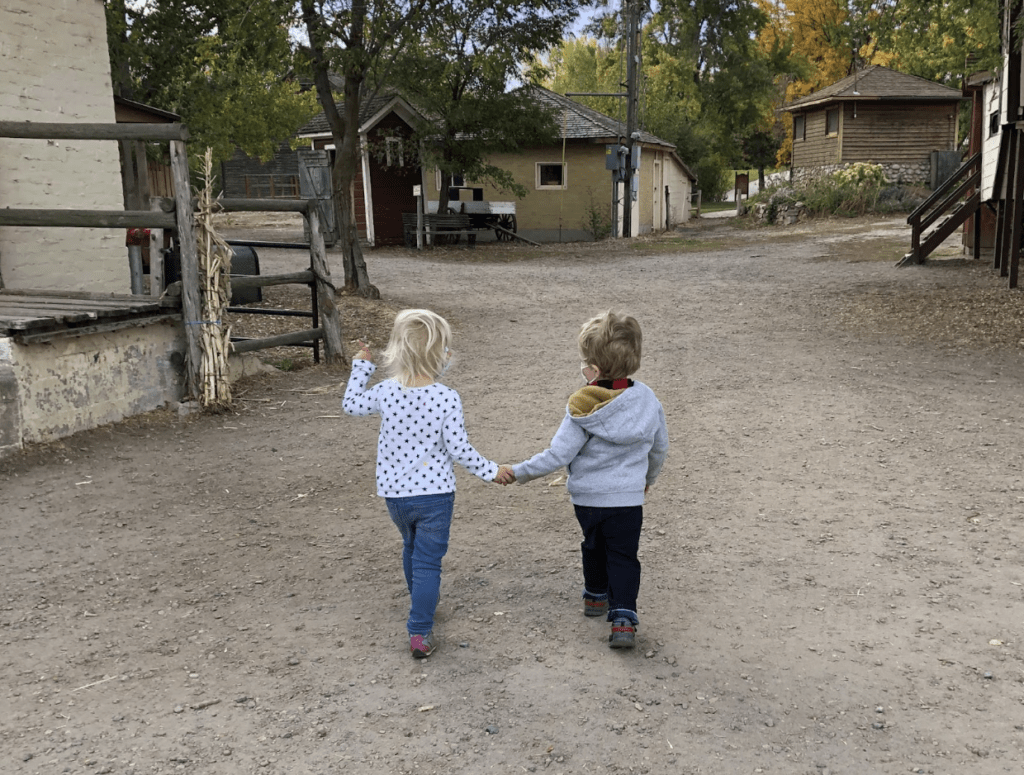 My past blogs have made the case that three basic ingredients are key to making conflict productive: calm, curiosity, and creativity.
My past blogs have made the case that three basic ingredients are key to making conflict productive: calm, curiosity, and creativity.
If making conflict productive is that simple in theory, why is it so hard in reality?
As I’ve explained in prior blogs, I think the main answer lies in the fact that we see and understand conflict as bad, which in turn sets off a chain of unproductive tendencies. Instead of accepting the fact that people have different ideas, perspectives, needs, and wants and seeing this as a healthy part of life and an opportunity, we tend to see this as a threat. This is tied to our scarcity-based, zero-sum way of seeing the world. As long as we are in this scarcity, fear mindset, we’re not going anywhere good when we deal with conflict.
To get beyond this limiting mindset and to be calm, curious, and creative when dealing with conflict, I think we need to lean into another word that starts with C: compassion.
What is compassion?
Compassion—much like the related words empathy, sympathy, and pity—is a complicated concept, and different people define the concept in different ways. When I use the term, I lean on the common definition used in the field of psychology and contemplative practices, which describe compassion as the recognition and feeling of another’s suffering and the desire to relieve the sources of suffering. This aligns with the roots of the word compassion, which comes from the Latin com (“with, together”) and pati (“to suffer”).
What compassion is not: Compassion does not mean that you are “feeling with” someone—you don’t know how they feel, you may have never felt similar feelings, and you may never fully understand what it means to feel what they feel. It also doesn’t mean “feeling bad” or “feeling sorry” for someone; that connotes a sense of judgment and of being above and/or separate from those who are suffering, which are antithetical to feeling true compassion. Compassion also isn’t about just trying to make someone “feel better” or make their suffering go away; to do so denies someone’s pain and suggests their experience and feelings aren’t acceptable. It is also important to make clear that compassion is not agreeing with someone’s perspectives or proposed solutions and it is not giving in to others’ demands or tolerating poor behavior.
What compassion is: Compassion is simply about understanding that we and others feel the way we do, behave the way we do, and struggle with certain things for a reason; holding that understanding with kindness and non-judgement; and seeking to reduce sources of suffering. It is that simple—and that hard.
This idea of compassion has major implications for how we relate to and treat others. It also has major implications for how we relate to and treat ourselves. Compassion directed toward ourselves, or what is called self-compassion, is about offering understanding and kindness toward ourselves when we suffer (such as when we feel inadequate or hurt, when we have not lived up to the standards we set for ourselves, etc.). Instead of judging or criticizing ourselves, or pushing our pain away, self-compassion requires that we let ourselves feel our pain and hold it with kindness and understanding as we seek to alleviate sources of our suffering.
Why compassion matters when dealing with conflict
I personally believe that compassion for ourselves and others is a fundamental skill for living a joyful life. Pain, whether physical or emotional, is inevitable; suffering is not. Through treating ourselves and others with kindness and understanding, and through seeking to alleviate sources of suffering for ourselves and others, we can make life much easier and more enjoyable for ourselves and others.
Whether or not you believe that compassion is a fundamental life skill, I encourage you to think about its role in conflict situations. Can you be calm when dealing with conflict if you’re judging yourself or others for feeling threatened or dysregulated by the fact that you don’t see eye to eye? Can you approach conflict with curiosity if you don’t accept and hold kindness for the fact that you and the other party might have different needs and that the possibility of not having those needs met is scary for both of you? And can you bring creativity to conflict if you aren’t open to and accepting of different ways of thinking about and approaching the issue?
Based on lots of experience, research, and observation, I feel confident that the answer to those questions is “no” and that compassion is a necessary precondition for all three key ingredients of productive conflict.
I also feel confident that most humans are capable of deep compassion, that we can build this skill through practice, and that doing so improves our lives—and our ability to productively work through conflict—in all sorts of miraculous, empowering ways.
So how do we develop our compassion?
I’ll be honest: compassion is a skill I have worked hard to develop and one that I still struggle with daily, whether in the context of conflict or otherwise. Indeed, I can think of many recent examples where lack of compassion for myself and/or others made it harder to get to a productive outcome.
All to say I am not sure I am the best teacher for how to develop compassion. The good news is there are numerous excellent resources out there for anyone who recognizes this is an important area of growth.
That said, in the hope this is helpful for others, here are a few things I have found helpful for increasing my compassion and bringing it into conflict situations:
- First and foremost, I do my best to operate from an understanding of the fact that all humans, myself very much included, are the way we are and behave the way we do for a reason. We are all formed through the combination of our genetics and experiences. We all see and experience the world through the unique lenses we have developed as a result of those things. While this can create challenges in relating to and working with each other, it is a pretty amazing thing! Seeing it in this way liberates and empowers me to hold others with kindness, respect, and even a little bit of healthy awe.
- As I have written about in past blogs, our neurological systems communicate with each other and we have a tendency to mirror each other. I cannot change others, but I can always do my best to show up in relationships and conflict situations with compassion for myself and others. When I do that, others are much more likely to behave similarly, whether or not they do so intentionally.
- In my experience, the old adage “you can’t offer others what you don’t have” is generally true, and this is definitely the case when it comes to compassion. If we do not offer ourselves compassion, it is hard if not impossible to offer it to others. Hence, I am constantly working on being kind and understanding of my own struggles and suffering. For example, even though I have been teaching people how to navigate conflict for well over a decade, I still sometimes behave poorly in conflict settings (this is especially true with family. Family patterns are wired deeply in our brains!). When this happens, I remind myself that I too am human and struggle with the same challenges I teach people about. I then get curious about what led me to not practice what I preach—what got in the way? Usually that inquiry reveals some hidden source of fear or pain that I need to honor and work through. When I attend to my own suffering, it makes it much easier to show up to future conflict with more calm, curiosity, and creativity..
Tune into and practice compassion
As I said in my last blog, curiosity is a superpower when dealing with conflict. So is compassion—and, in many ways, it is a precursor to curiosity (and to calm and creativity).
I encourage you to tune into compassion. Are you being compassionate with yourself? Are you being compassionate with others? How does this influence how you approach, experience, and work through conflict?
Practice bringing a little more compassion to yourself and others; you might be surprised how much that influences how you experience and navigate conflict—and life in general.
And remember to be compassionate with yourself as you give compassion a try; like all superpowers, it takes work!
Danya Rumore, Ph.D., is the director of the Environmental Dispute Resolution program in the Wallace Stegner Center at the University of Utah. She is a research professor in the S.J. Quinney College of Law and a clinical associate professor in the city and metropolitan planning department at the University of Utah. She teaches about, practices, and conducts research on conflict, negotiation, dispute resolution, leadership, and collaborative problem solving. She is also the founder and a co-director of the Gateway and Natural Amenity Region (GNAR) Initiative.
About the EDR blog: Hosted by the Wallace Stegner Center’s Environmental Dispute Resolution (EDR) program, the EDR blog shares ideas, tools, and resources to cultivate a culture of collaboration and help readers be more skillful in working through conflict. Read additional blog posts at edrblog.org.

